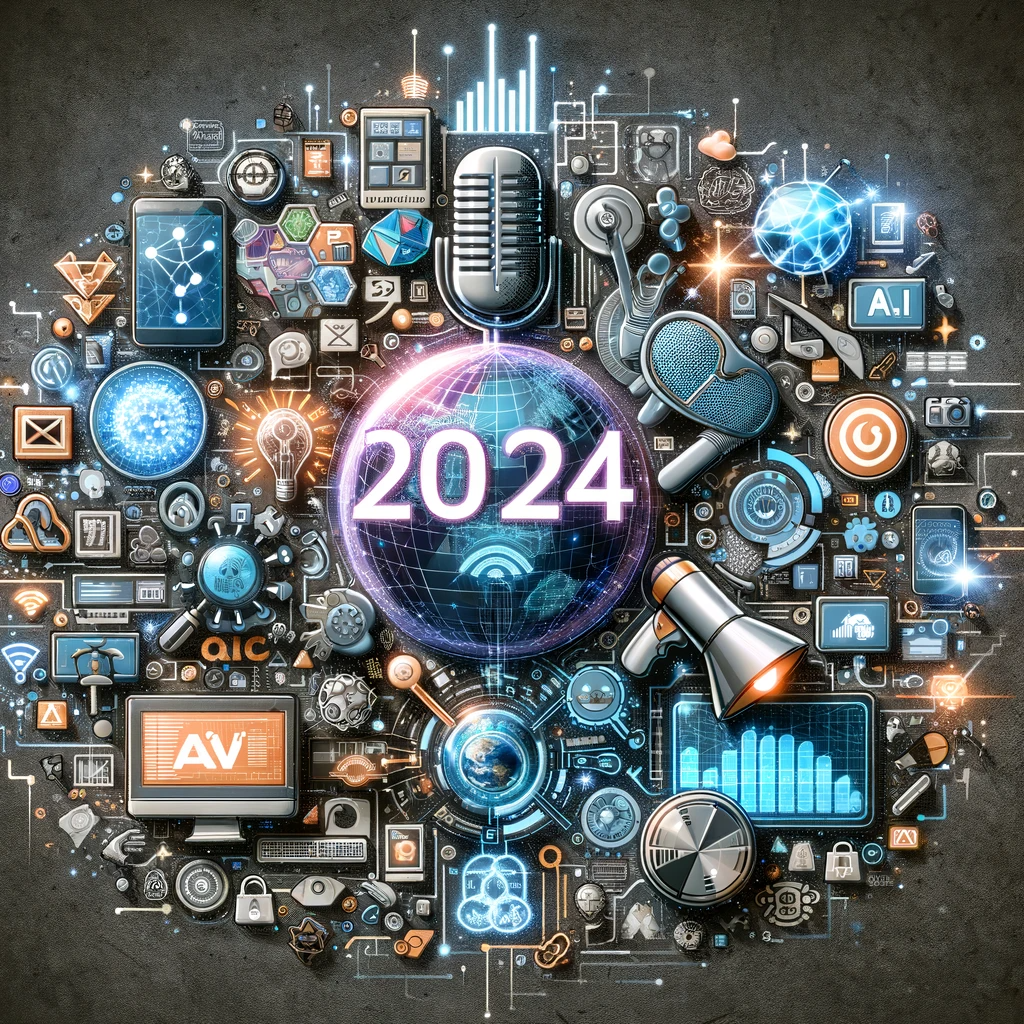As 2024 approaches, the digital marketing arena is poised for transformative changes. Driven by technological advancements and evolving consumer behaviors, these trends offer opportunities and challenges for marketers. Understanding and adapting to these trends is crucial for businesses aiming to thrive in an increasingly digital world.
1. AI and Machine Learning: Personalization at Its Best
AI and ML in Marketing: AI and machine learning are revolutionizing digital marketing by offering unprecedented insights into consumer behavior and preferences. These technologies enable sophisticated analysis, allowing for hyper-personalized customer experiences and highly targeted campaigns.
Personalization at Scale: AI-driven personalization is about delivering content and offers that are tailored to individual customers. By analyzing data on consumer preferences and behaviors, AI can recommend products, customize emails, and dynamically alter website interfaces, providing a unique experience for each user
2. Voice Search Optimization: Adapting to Changing Search Behaviors
Growing Importance of Voice Search: With the proliferation of smart speakers and voice-assisted devices, voice search is becoming a dominant mode of online search. This shift necessitates a rethinking of SEO strategies to align with natural language processing and the conversational nature of voice queries.
Optimizing for Voice Search: Effective voice search optimization involves incorporating long-tail keywords and structuring content in a Q&A format. Local SEO becomes crucial as many voice searches are location-based. Appearing in featured snippets, which are often read out by voice assistants, can significantly boost a brand’s visibility in voice search results.
3. The Metaverse: A New Frontier for Engagement
The Rise of the Metaverse: The Metaverse, an emerging virtual space where digital and physical realities converge, offers exciting new opportunities for digital marketing. It’s a realm where users can interact, socialize, and experience brands in a completely immersive way.
Marketing Opportunities in the Metaverse: The Metaverse allows brands to create unique virtual experiences, such as 3D showrooms and interactive events. It also opens up possibilities for selling virtual goods, like NFTs, and engaging with customers on a deeper level
4. Social Commerce and In-Feed Shopping: The Evolving Shopping Experience
Social Commerce and Consumer Behavior: The integration of e-commerce with social media platforms, known as social commerce, is redefining the shopping experience. It allows consumers to discover, research, and purchase products without leaving their social media apps
Advantages of Social Commerce: This trend offers enhanced customer engagement and targeted marketing through social media’s sophisticated algorithms. It provides convenience for customers and leverages user-generated content effectively. However, brands need to maintain consistency across platforms and handle data privacy securely.
5. Personalization and Customer Experience: Prioritizing the Customer
Enhancing Personalization and Experience: Personalization in digital marketing goes beyond basic customization. It involves leveraging customer data to deliver relevant and resonant experiences. This includes predictive analytics and effective segmentation for targeted marketing efforts
Improving Customer Experience: A seamless omnichannel experience is essential for customer satisfaction. This means consistent messaging and quality interactions across all digital touchpoints, including websites, social media, and emails. User experience (UX) design plays a significant role in this, requiring intuitive, aesthetically pleasing, and easy-to-navigate digital platforms
Additional Trends to watch out for:
- Content Marketing: Content marketing remains crucial, acting as the foundation that integrates various digital tactics. It requires dedicated strategies and efficient management to support modern marketing activities.
- Data and Insights: With the impending ‘cookieless future’, new approaches to data collection and attribution will be necessary. Setting clear targets and using digital marketing dashboards for tracking are best practices in this domain.
- Ethical and Inclusive Marketing: Today’s consumers expect brands to demonstrate social responsibility and inclusivity. This involves ethical advertising practices, sustainable marketing strategies, and representing diverse groups in marketing campaigns.
- Interactive Content and Micro-Moments: Engaging users through interactive content like quizzes, polls, and AR experiences is increasingly important. Capitalizing on micro-moments, when consumers turn to devices for immediate needs, is key for effective engagement.
- Video Marketing: The power of video content continues to dominate, with a shift towards more interactive and personalized video experiences. Brands need to create high-quality, relevant video content and stay updated with evolving trends.
- Influencer Marketing Evolution: Influencer marketing is evolving towards authenticity, with a shift to micro and nano influencers. Brands need to focus on building long-term relationships with influencers whose values align with their own=.
Conclusion
The digital marketing landscape in 2024 is marked by the advent of new technologies and the evolution of consumer preferences. Embracing AI and ML for enhanced personalization, optimizing for voice search, exploring opportunities in the Metaverse, integrating social commerce, and focusing on personalized customer experiences are key to staying ahead in the digital game. Businesses that adapt to these trends will not only engage more effectively with their audience but also pave the way for future success.




